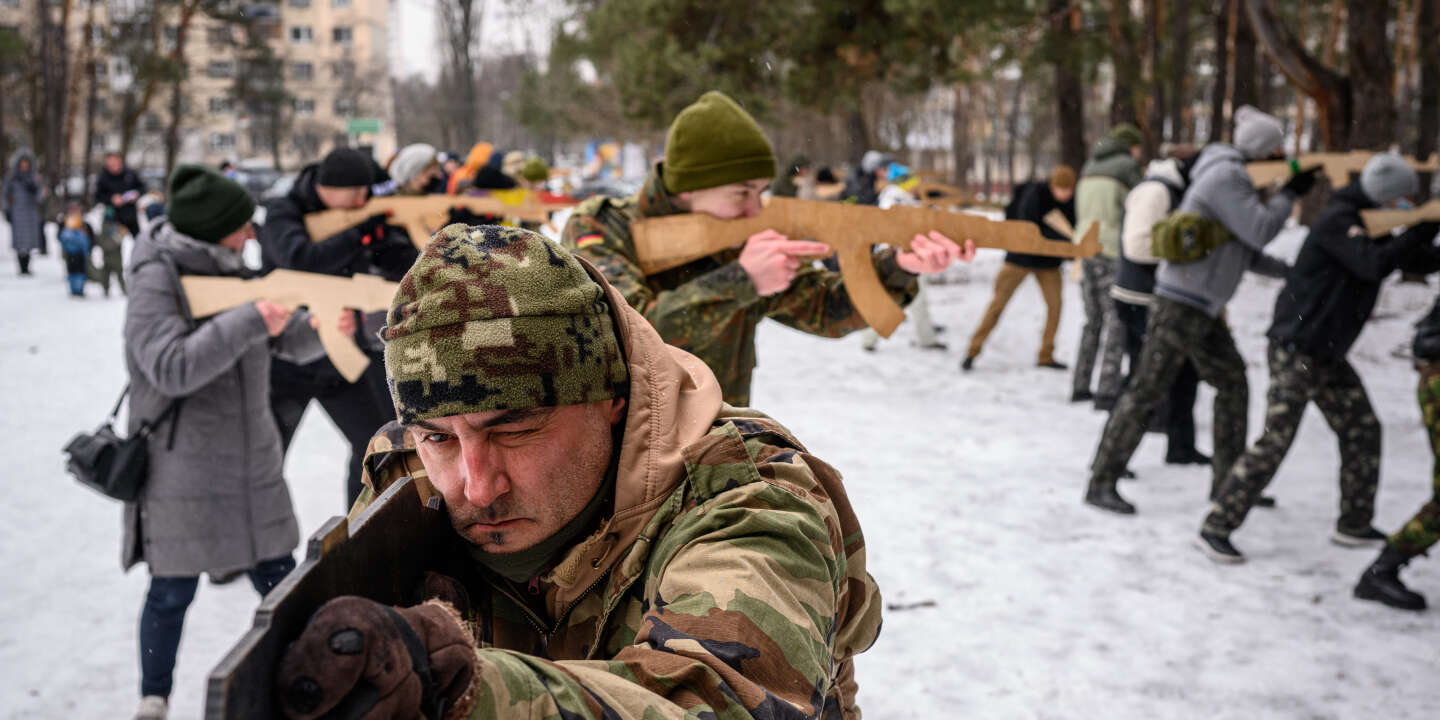InvestigationUntil the eve of the Russian invasion, on February 24, European capitals remained deaf to the warnings issued by Washington. Paris and Berlin, in particular, wanted, despite the evidence, to believe in the virtues of the outstretched hand policy. A story of blindness.
The scene takes place in the hushed living room of a European embassy, in the heart of the Ukrainian capital, three weeks before the start of the Russian offensive. Outside, the streets of kyiv are quiet, the cafes open and the shops busy. In this apparent calm, the inhabitants live to the rhythm of contradictory declarations. While some 130,000 Russian soldiers are massed on the borders of Ukraine, President Volodymyr Zelensky repeats that there is no need to panic, while the United States is alarmed by an invasion which they consider “Imminent”. On February 2, the European diplomat brought together a handful of journalists for an “off”, according to the established expression. He wishes to take stock of the crisis between kyiv and Moscow, which denounces the“hysteria” western and denies any bellicose intention.

In the embassy, a diplomatic adviser evokes his Ukrainian hairdresser, who cut his hair the day before and swept aside any prospect of threats. “People are not worried”, he concludes. The diplomat, he admits his perplexity. ” We understand that there are military reinforcements, he said, but there is no particular nervousness. We are surprised by the alarmist discourse of the Anglo-Saxons. We are rather on the Ukrainian line. »
The evacuation of the families of American diplomatic personnel, ordered by Washington on January 23, and imitated the next day by London, was judged « excessive » and “premature” by kyiv, but also by part of Europe. The insistence of the United States even ended up fueling suspicion: would Washington have its own agenda in this crisis? “That’s the question we ask ourselves.recognizes the diplomat. We are afraid of self-fulfilling prophecies that could send Ukraine down the wrong path. » Yet, he wonders, “Americans seem sincere! They hold the same speech in public and in private.. Should a Russian invasion be seriously considered? At the beginning of February, in the Western camp, no one – apart from the British, who belatedly followed in the American wake – wants to imagine the worst-case scenario. This war is unthinkable, unthought.
Three weeks later, Russian tanks cross Ukraine’s borders on three fronts, while the first missiles fall on military and civilian targets, including in kyiv. Washington’s dire predictions are indeed coming true. In the West European chancelleries, disbelief dominates. Until the end, their experts and diplomats ruled out the possibility of a major Russian military offensive. And now, on Thursday, February 24, before dawn, war is back in Europe.
You have 90.75% of this article left to read. The following is for subscribers only.





